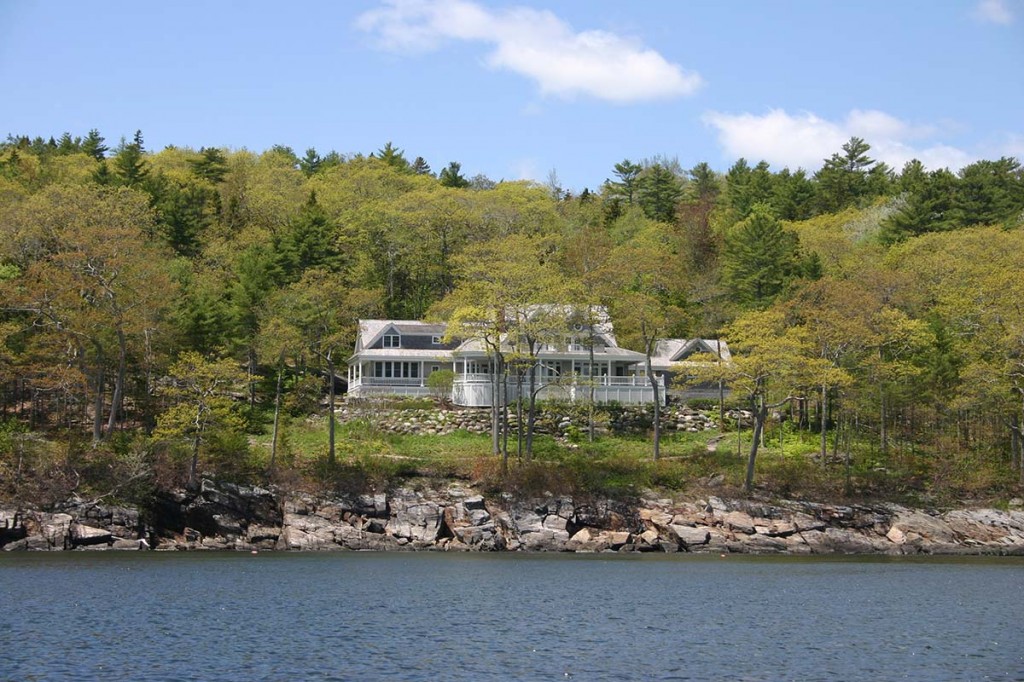 |
 |
 |
We’re seeing more activity at the top end of the real estate market as we make our way into the fall season, with more inquiries, more showings, and more offers. Sales statistics for the market above $800,000 show that there have been slightly more sales to date than there were at this time last year; sales above $1,000,000 are slightly down from last year statewide. As we have observed for the last year or so, the Maine high-end market seems to be rising very slowly off the bottom. Some specific areas, such as in-town Camden and Rockport, or downtown Portland, seem to be well on the way to a slow but defined recovery. Other areas, including most of the communities in the midcoast region, are still very quiet.
During the first part of the year, there were few requests for showings. In the second quarter, we had more showings but few offers. We are encouraged to now see more buyers making offers, but there remains a significant gap between sellers’ expectations and buyers’ perceptions of value.
Pricing is always important, but in the current market it’s critical. Buyers today are incredibly savvy and well-informed. They know what has been on the market, and for how long; they are familiar with comparable properties and they are tracking sale prices. Many sellers believe that they can test the market with an aggressive asking price and buyers will make an offer. This is almost always untrue—buyers rarely even bid on a property unless they think they will be able to buy it a price that is fully justified by current market activity and recent sales. When a property is priced close to its current market value, buyers are much more likely to make an offer, and sellers are more likely to achieve a sale near the asking price in a reasonable amount of time.
When they do make offers, buyers are willing to negotiate a little bit, but the days of meeting a seller halfway between asking price and initial offer price seem to be over for a while. Most buyers have been willing to come up a little bit, but not much, and they have been walking away if their price is not met.
Our sense is that the parts of Maine currently showing signs of recovery are going to keep improving, while sales in other communities will stay flat until prices start to come down closer to buyers’ expectations, and until there are more buyers entering the market. Even though we are receiving more offers, there still too little demand to absorb the existing inventory or put any upward pressure on pricing.
However, the broader economic picture is improving, and as buyers’ financial situations improve and their confidence grows, they should once again consider vacation property in Maine. As author and economist Richard Florida noted in a recent article, “the (U.S.) economic landscape is being reshaped around two kinds of hubs—centers of knowledge and ideas, and clusters of energy production. These are the places driving the economic recovery.” Maine’s vacation home market should benefit from this because the majority of our buyers are from the northeast, the section of the east coast spanning from Washington D.C./Philadelphia through New York and Boston—major knowledge centers. Many other buyers are coming to us from America’s energy belt—Houston to New Orleans, a region that is also rising.
The rebounding primary home market in these cities is showing us the strength of the economy and the willingness of buyers to re-enter the real estate market. As these individuals begin to feel confident about the primary home market, their attentions can again turn to a second home.
As we’ve noted before, we continue to see a younger group of buyers in their 30s and 40s, many with young children. As the economy improves, we have every reason to expect that they will continue to come to Maine. Many of them appreciate Maine’s quality of life, natural beauty, privacy, relatively quiet pace, and the tremendous value that Maine real estate provides in comparison to other coastal markets. It’s still challenging and time-consuming to come and go from many parts of the state, a disadvantage from the perspective of these new, mobile buyers. However, as telecommuting becomes the norm for many professions, a home in Maine becomes an option for many more pre-retirement buyers.
Furthermore, as real estate markets rebound in other parts of the country, and the economy continues to improve, we believe that some baby boomers and retirees will step back into the Maine market.
Meanwhile, sellers should know that careful and realistic pricing remains critically important, and patience is essential. Demand has been so low that even properties that appear to be priced correctly may take time to sell. For buyers, it’s clear that we’re at the bottom, and it’s a terrific time to buy and take advantage of all that Maine has to offer.
![]() This entry is brought to you by Terry Sortwell, Regional Manager and Principal,
This entry is brought to you by Terry Sortwell, Regional Manager and Principal,
and Shannon Thompson, Project Manager in our Camden office, who assist and advise
real estate buyers and sellers of fine homes, islands, and distinctive farms throughout midcoast Maine.
Click for information on midcoast Maine real estate properties for sale.
